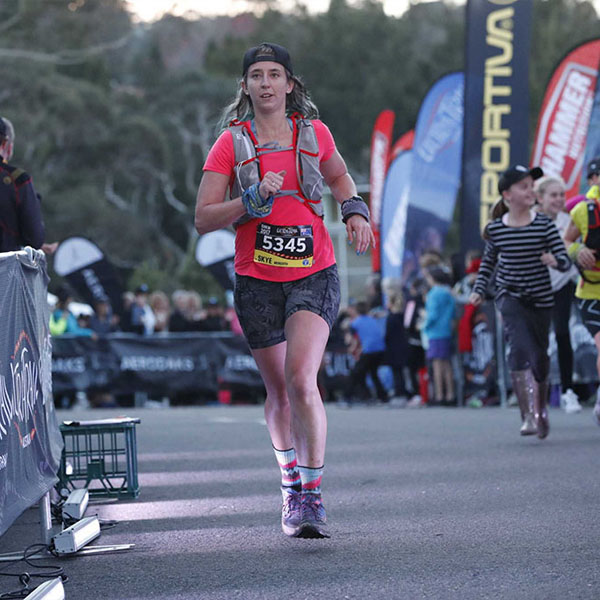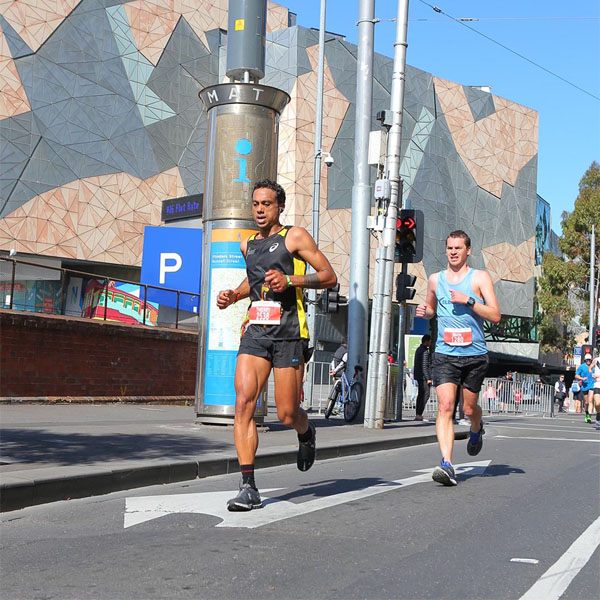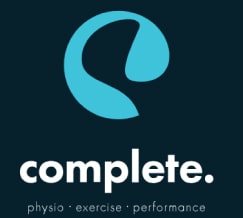Top Marathon Preparation Tips (from a seasoned veteran – Me!)

Pick the event and know WHY this is something you want to do
Running a marathon takes commitment, time and passion. When the going gets tough, you need to know WHY you’re doing this and what you’re wanting to achieve. Knowing your ‘why’ can help you out of most mental blocks.
Training
It is important to have a plan about how you are going to tackle your training block. Asking yourself a few questions can help with your planning.
- Do you have a time goal? What is it?
- How many days can you train per week?
- Do you prefer to run alone or with others?
- Are you comfortable with a generic plan, or do you need something more tailored?
Start looking at these questions early. Consider joining Facebook or Instagram groups such a Melbourne Marathon community group, Hawthorn Run group or Crosbie Crew. These groups are great resources, and full of plenty of likeminded people!
Consistency over kilometres
Big kilometres don’t always equal great performance, consistency through your training blocks is more important than hitting specific kilometre targets over the weekend. Some shorter disruptions are normal, it’s the longer disruptions and yoyoing in training that can lead to an increased risk of injury and impact your performance (Feely et al., 2023).
Keep on top of niggles and injuries
Running injuries are common! It’s how you manage them that is important. Not all niggles require an appointment with a health professional. However, generally pain that lingers and doesn’t settle, builds through a run, increases the next day after running or just “doesn’t feel right” should be assessed by a health professional for a diagnosis and rehabilitation plan. Here are 5 common marathon related injuries we see.
Remember, not all injuries require you to stop training. Most just require some temporary adaptations.
Strength training
Trail, ultra and road runners can all benefit by lifting weights. It will improve your running economy and performance, and it may help to reduce your risk of injury. Strength programs should include some heavy lifts, single leg and plyometric work.
Recovery and rest
You can only adapt to loads you can recover from. Many runners do not rest and recover from their training adequately. This can lead to injuries, poor performance, physical and mental fatigue and inconsistent training. Make time to recover and don’t forget the impact of life and work stress. This is where a coach can tinker with your training each week to ensure you get the most out of yourself.
I’ll be doing another blog looking further into this so keep an eye out.
Nutrition: Trial you’re fuelling and hydration strategies
On your longer training runs test out the nutrition on course and what you plan to use on race day. One option might be fine on a 60-minute run, but after 2.5 hours there may be no chance of you keeping it down! Basic carbohydrate guidelines for 2.5-3 hours of exercise are up to 90 grams per hour (IOC, 2012). Train your gut and know what works for you. It is important to go through the same process for hydration. Make sure you are comfortable with your fluids, and have a plan for warmer weather including electolytes, salt sticks etc..
While we’re on this topic of fuelling, marathon training increases the energy requirements for our body to maintain basic daily function. Ensure through this training that your energy availability is in line with your training to avoid going into a low energy state.
If you’re unsure seek advice from a nutritionist or dietician.
Test your gear
Always test everything you plan to use; you don’t want to find out on race day how much those new shoes rub. Test out shoes, socks, outfit, any chaff cream, packs or belts and where/how you’ll carry nutrition or fuel.
Practice the mental game
Through your long runs practice your self-talk when it gets hard, everyone’s a little different with this. You need a mantra or some kind of positive distraction to re-focus your attention to the task at hand, I count my steps until I start to lose count, imagine my shoes as a cartoon like road runner or repeat something positive in my head like ‘one foot in front of the other’. Training the mental part of your preparation both before, during and after the event can have a positive impact on the quality of your performance (Jaenes et al., 2021).
Taper crazies
A marathon taper is a gradual decline in mileage prior to the event to allow rest, recovery and absorption of the physical stress in the final build phase of training. During this taper your will not be gaining any fitness but allowing your body and mind to recover and get ready for race day. This phase gives you mental rest from training, and allows your glycogen levels, hormones and immune system to recover from training.
During this period, you may feel tired, your legs can feel a little heavy and your mind starts to question everything ‘Did I train enough?’ ‘What about this or that?’ ‘Oh they’re still doing long runs, should squeeze in another longer run?’ ‘Is that a niggle?’.
Remember you’ve done the work and you’ll be feeling great a few days out from the race.
Race day
After months of hard work, sacrifices and preparation, race day finally arrives. A few tips and things to avoid for a good day!

- Plan: Plan your evening, dinner and race kit the night before. On race morning plan your breakfast, this should be dialled in through trial and error in training. Arrive early to the event so you have plenty of time for toilet stops (oh the lines) and getting into the start line.
- Warm up: Space is often tight but find a space to do a warmup to prime your muscles for the day ahead.
- Avoid new things: new gear, new nutrition, keep to what you know and have tested where you can.
- Pre-race nerves: Know that you’ve done the work, trust in the process, all your training and enjoy the ride! Remember all the things you faced in training, if you hit a rough patch workshop you’re way through it.
- Run your own race: The atmosphere is exciting, you’re on fresh legs and the crowds cheering. Stick to your own race plan not someone else’s, going out at a pace that is not sustainable for you will impact you later in the race.
- Fuel and hydration: Take in fuel regularly from the start, set a timer on your watch to remind you if necessary.
- ENJOY the experience! Chat to other runners, high five kiddies, say thankyou to volunteers and smile even though it may not feel like you want to.
- Recover: start recovery protocol at the finish line. Cool down, take in some carbohydrate and protein as soon as can and go for a gentle walk the next day.
Happy Running!!
References
Feely, C., Smyth, B., Caulfield, B., & Lawlor, A. (2023). Estimating the cost of training disruptions on marathon performance. Frontiers in sports and active living, 4, 1096124. https://doi.org/10.3389/fspor.2022.1096124
Jaenes, J. C., Wilczy?ska, D., Alarcón, D., Peñaloza, R., Casado, A., & Trujillo, M. (2021). The Effectiveness of the Psychological Intervention in Amateur Male Marathon Runners. Frontiers in psychology, 12, 605130. https://doi.org/10.3389/fpsyg.2021.605130
Maughan, R., & Burke, L. (2012). Nutrition for athletes: A practical guide to eating for health and performance, IOC. https://library.olympics.com/Default/doc/SYRACUSE/74010/nutrition-for-athletes-a-practical-guide-to-eating-for-health-and-performance-based-on-an-internatio#


